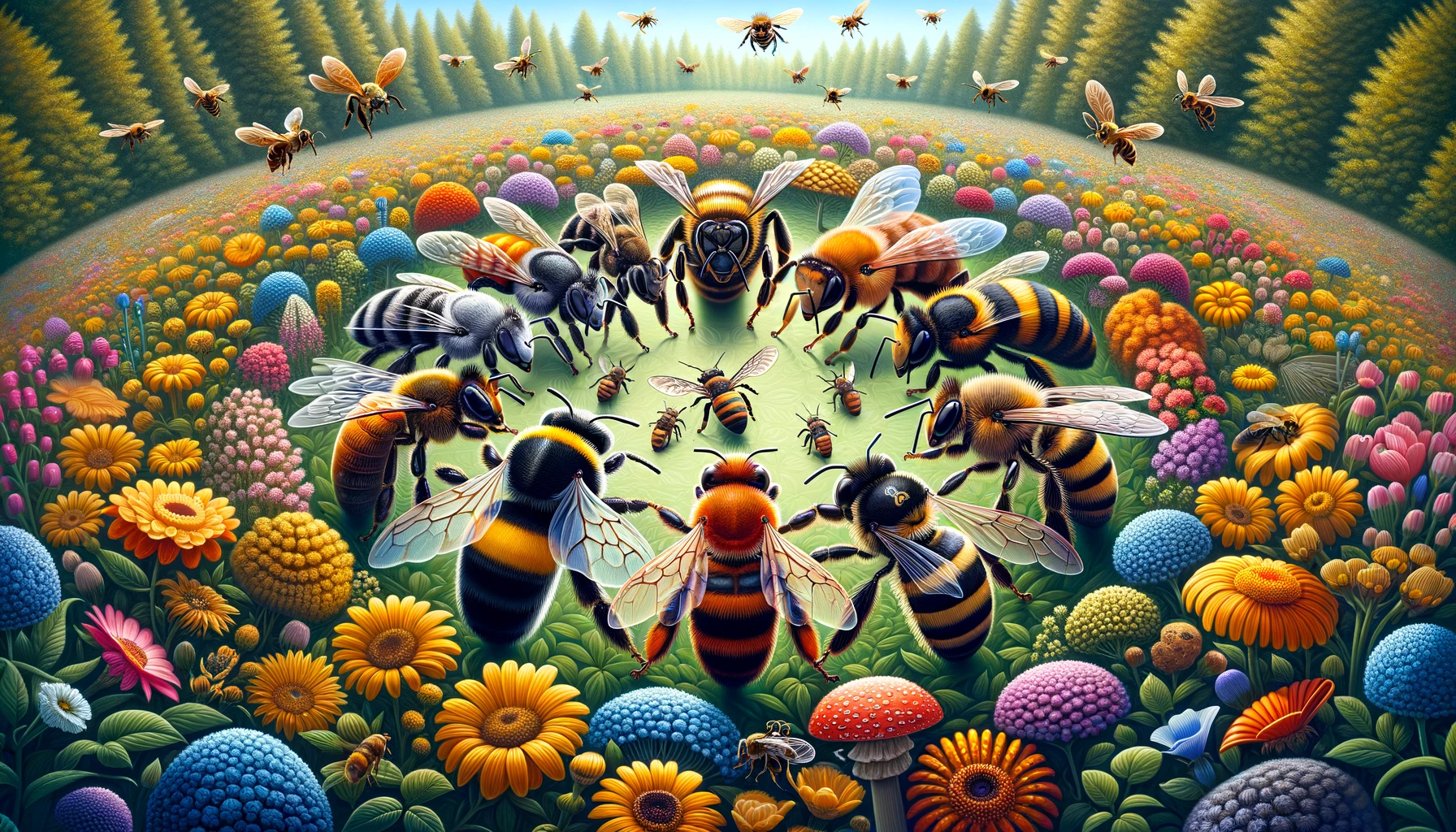
Understanding Different Types of Bees and Their Importance
Bees are not just another insect; they are pivotal players in the environment, agriculture, and the global economy. Their role in pollination is fundamental to the survival of many plant species and the production of a significant portion of the food we consume. In this detailed exploration, we will delve into the different types of bees, their unique roles, and why their preservation is crucial for our planet.
The Vital Role of Bees in Pollination
Pollination is the transfer of pollen from the male parts of a flower to the female parts, leading to the production of seeds and fruit. Bees are among the most important pollinators, visiting millions of flowers to collect nectar and pollen, inadvertently transferring pollen as they move from one flower to another. This process is critical for the reproduction of over 85% of the world’s flowering plants, including more than two-thirds of the world’s crop species. The economic value of bees as pollinators is estimated in billions, highlighting their immense contribution to global food security.
Diverse Species of Bees
With over 20,000 species, bees exhibit incredible diversity, each with distinct behaviors, physical characteristics, and roles within ecosystems. Let’s explore some of the key types:
Honeybees (Apis)
Honeybees are social insects known for producing honey from the floral nectar they collect. A single colony can house tens of thousands of bees, including a queen, workers, and drones. Their structured social system, fascinating communication methods (such as the waggle dance), and ability to pollinate make them one of the most studied bee species. Honeybees play a critical role in pollinating crops, from fruits and nuts to vegetables, directly influencing food diversity and availability.
Bumblebees (Bombus)
Bumblebees are easily recognizable by their robust bodies and fuzzy appearance. They are excellent pollinators, capable of buzz pollination, a method that dislodges pollen more effectively. Bumblebees live in smaller colonies than honeybees, often in the ground. Their ability to pollinate in cooler temperatures and over longer periods makes them vital for the pollination of crops such as tomatoes, peppers, and various wildflowers essential for ecological balance.
Solitary Bees
Unlike their social counterparts, solitary bees make up the majority of bee biodiversity. Each female independently builds and provisions her nest. These bees are incredibly efficient pollinators; a single solitary bee can often do the work of many honeybees in pollinating plants. Mason bees and leafcutter bees are prime examples, known for their gentle nature and effectiveness in pollinating fruit trees and flowers, contributing significantly to local ecosystems and food production.
The Importance of Protecting Bees
The decline in bee populations worldwide poses a serious threat to biodiversity, food production, and the environment. Habitat destruction, pesticides, climate change, and disease all contribute to this decline. Protecting bees is not just about conserving a single species but about preserving the intricate web of life that supports our own survival. Conservation efforts, such as creating bee-friendly habitats, regulating pesticide use, and supporting sustainable farming practices, are crucial steps in ensuring the future of bees and, consequently, our own future.
Safe and Humane Bee Removal with AllBeesRemoval
In urban and suburban areas, bees sometimes nest too close to human habitation, posing risks to people, especially those with allergies to bee stings. AllBeesRemoval offers a solution that respects the vital role of bees in our ecosystem. Our expert team specializes in safe and humane bee removal, relocating bees without harm, and ensuring they can continue their essential work in a more suitable environment. By choosing AllBeesRemoval, you’re not just protecting yourself; you’re contributing to the preservation and health of bee populations and the broader ecosystem.
Conclusion
Understanding the different types of bees and their roles in our ecosystem is crucial for appreciating the complexity of life and the balance of nature. Bees are more than just insects; they are essential pollinators that support the growth of trees, flowers, and other plants, which serve as food and shelter for creatures large and small. Their decline affects us all, and their protection is a responsibility we share. By supporting bee conservation and choosing humane bee removal services, we can ensure that bees continue to thrive, pollinating our world and enriching our lives.

